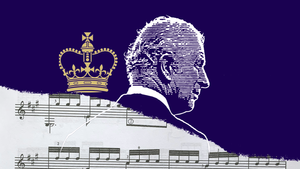Music industry organisations have welcomed yesterday’s King's Speech, which set out the new UK government’s legislative agenda. There are a number of specific legislative reforms of relevance to the music industry, where music companies will want to influence the debate, as well as other commitments that have been welcomed by the music community.
For touring artists and the live sector more widely, a key concern in recent years has been the extra bureaucracy that was introduced by Brexit. Yesterday’s speech confirmed that the new government will “seek to reset the relationship with European partners and work to improve the United Kingdom’s trade and investment relationship with the European Union”.
That commitment was noted by John Collins, CEO of LIVE, which represents the live music industry. Saying that he looks “forward to working collaboratively with Labour in government to unleash the potential of our sector”, he added, “The government’s plans to reset relations with the EU can enable UK artists to tour more easily and we urge quick action on this”.
Collins also welcomed plans to devolve more power in England down to mayors and local authorities, which he called a “positive step”. In the King's Speech, the government said it “believes that greater devolution of decision making is at the heart of a modern dynamic economy and is a key driver of economic growth”. LIVE presumably hopes that the mayors and authorities getting more power will better understand the challenges facing local music scenes.
The government has also committed to pass the already in development Terrorism (Protection Of Premises) Bill - commonly known as ‘Martyn’s Law’- which was developed in response to the 2017 terrorist attack on the Manchester Arena and will put in place new rules around venue safety and security.
On that, Collins says, “We recognise government endeavours to improve the safety and security of public venues and keep the British public safe through the Terrorism (Protection Of Premises) Bill. We fully support the objectives of this bill, but the previous draft would have failed to deliver these objectives while placing disproportionate burdens on venues and festivals, so an urgent review of the government's approach is needed”.
“We remain committed to working with government to ensure any new requirements are workable and, crucially, build on existing steps taken by industry to deliver greater reassurance and safety for concertgoers”, he adds.
One of the areas where the new government is promising big reform is planning regulations, which could also impact on the live side of the music industry, as noted by Gee Davy, Interim CEO of the Association Of Independent Music, as she welcomed the King's Speech.
“We urge the new government to strengthen the ‘agent of change principle’ in their housing and planning goals, to protect the UK’s independent venues and the music that makes a building feel like a home”, she states. Agent of change is the principle that says that developers building new residential properties need to consider nearby venues and then mitigate, upfront, any future noise issues that could emerge by putting homes next to existing businesses.
Both Collins and Davy also welcomed the new government’s commitment around skills and plans to reform the apprenticeship levy that subsidises apprenticeship training costs. Says Davy, “We welcome reforms to broaden the apprenticeship levy, which we hope will enable businesses of all scales to engage and provide opportunities for young people”.
One thing not included in the King’s Speech was a standalone AI Bill, which some had been anticipating. That said, there was a commitment to “establish the appropriate legislation to place requirements on those working to develop the most powerful artificial intelligence models”. That was welcomed by Davy at AIM, as well as the BPI.
In its response to the speech, record industry trade group BPI says, “Any legislation on AI or data must ensure that human creativity is respected through a framework of authorisation to enable creativity and technology to flourish in partnership. This requires appropriate measures on transparency, labelling and data collection. We look forward to working with the government as it shapes its legislative plans further”.

